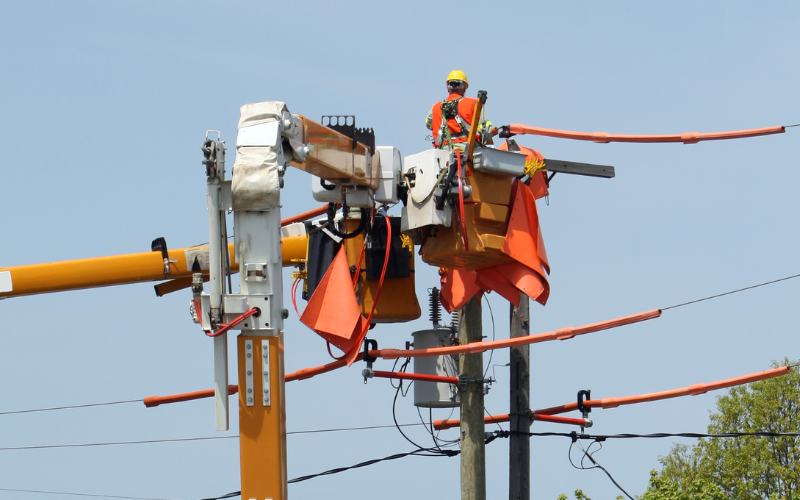
National Electrical Safety Month is held in May to highlight important safety tips that can help keep workers safe when using electrical equipment. Tips include practicing the lockout/tagout procedure when repairing equipment. Anyone working with electrical systems should also wear arc flash PPE to protect themselves from electrocution and flash fire.
May is known as National Electrical Safety Month in the U.S. Created by the Electrical Safety Foundation International (ESFI), it aims to remind professionals in various industries to use caution when working with or near electrical and power generation equipment. Accidents involving electricity can lead to electrocution and flash fire. According to the Bureau of Labor Statistics, there were 126 fatal electrical injuries in 2020, which represents a 24 percent decrease from 2019, but the number of hours worked in 2020 decreased by 10 percent.
Mistakes can still happen on the job regardless of how and where this equipment is used. Companies and employees can recognize Electrical Safety Month by playing it safe on the job. Keep these safety tips in mind when doing electrical work or when using or repairing machines that use electricity.
Identifying potential electrical hazards in the workplace is where it all starts. Employers and workers can take steps to either eliminate the hazard or wear personal protective equipment (PPE) to reduce their risk of injury on the job.
Outdoor Electrical Work
Professionals must use extreme caution when generating or using electrical equipment outdoors. All power lines and cords must stay moisture-free—including moisture from ice and rain. Workers should never leave this equipment unattended outdoors or connected to a power source. Keep power lines and cords visible and avoid running them through high-traffic areas. Anyone digging should contact the local utility company to determine if any power lines are underground.
Indoor Electrical Work
Give all appliances and electrical systems enough space and air, so they don’t overheat. Equipment should be unplugged and powered off whenever it is not in use. Mount power lines and cords firmly to the floor and keep them out of the way.
Working with electricity in confined spaces can also lead to arc flash fire. Exposed electrical circuits could ignite if flammable gases are in the air. Workers need to learn how to choose the proper arc flash PPE when working in these situations to protect themselves from severe burns.
Electrical System Repairs
Working near or with electrical systems can be dangerous. Everyone in the work area should assume all power lines and equipment are live unless otherwise noted. Workers must keep themselves and all equipment at least 10 feet from live power lines and at least 35 feet from downed power lines. Equipment, especially ladders, should be carried horizontally to avoid contact with overhead power lines.
Equipment Repairs
Machines using electricity need repairs at regular intervals to maintain energy efficiency. But the repair process can lead to injury if the machine is connected to a power source. Thirteen percent of all electrical injuries involve those performing system maintenance and cleaning. A certified electrician or service technician should only make the repairs. The company should also practice the lockout/tagout (LOTO) process to prevent the equipment from turning on during repairs. Learn how to select the right LOTO padlock for different types of equipment.
Regardless of where the work is being performed, employees should not overwhelm the electrical system by exceeding the recommended amperage. If they do not know the circuit limitations, they should check with a competent person familiar with the system before starting work. Workers can use energy-efficient appliances and equipment to reduce their electricity usage.
Practicing these electricity guidelines can help you avoid injuries at home or work. If you or your team has questions on best practices or are looking for appropriate safety supplies when working with electrical hazards, contact PK Safety’s worker safety experts.
SHOP ELECTRICAL SAFETY EQUIPMENT
